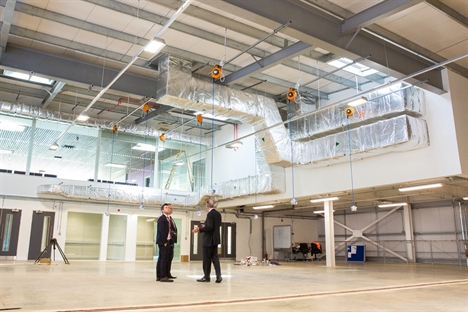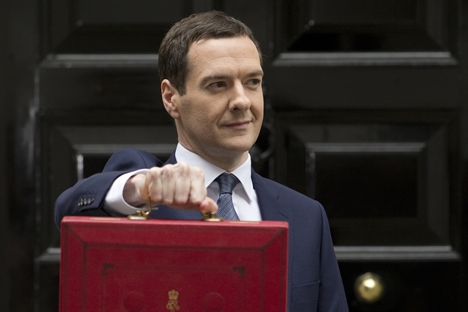27.08.15
‘Clumsy’ levy on employers will make it harder to train apprentices – NSARE
The chief executive of the National Skills Academy for Railway Engineering (NSARE) says the new apprenticeship levy on big employers, under which the government forces them to contribute more to funding for apprenticeships and then redistributes the money via vouchers, will be bureaucratic, time-consuming and counter-productive.
Neil Robertson told RTM at an interview at NSARE’s Westminster headquarters: “I genuinely think it will make it harder for us to hit our apprenticeship target, which is extremely disappointing.
“I still think we’ll hit it – we’re not going to let it stop us. But it’s an old-fashioned, clumsy tool.”
Robertson, who took on the top job at NSARE last month having previously run the Energy & Utility Skills Group, said the model should be co-investment between government and industry, as is happening with the National Training Academy for Rail in Northampton, and the HS2 college.

NTAR in Northampton. RTM's special feature on the new Academy appears in the Aug/Sept 2015 edition
Robertson added: “Let’s have a co-investment plan, please, not a voucher and ‘beat you over the head’ tax. It’s a tax, not a levy,” he said. “It already operates in the construction and engineering construction sectors, and there is a little one in film. Most people in those sectors will tell you it’s not a great experience. Not all, but most.
“We’re worried about bureaucracy. They’re taking money away, putting it through a process, then giving it back.”
Robertson said he had gathered feedback from NSARE member companies across the rail industry, and there was widespread dislike of the levy idea.
One suggestion, instead of forcing companies to pay what amounts to a tax and then redistributing the money, was for the companies to deduct their spending on apprenticeships from their own tax bills – and guarantee it via their finance director’s signature (their “professional life”, as Robertson put it), as they would on their main tax return. “So no money needs to actually change hands, and there’s no bureaucracy. That was one of the sensible suggestions.”
He noted that those doing best at training are the big companies – those who will be hit by the levy. “So they’re hitting the bit that’ s working well, which is not an obvious thing to do with a target of three million [apprentices].”
He questioned the viability of that target, too, noting that there are only 600,000 school leavers a year. “So if it’s only for first-time apprentices, that means everyone leaving school will have to be an apprentice!”
In fact, since about 400,000 of them will go into higher education (after the cap on that was lifted), the potential pool of apprentices is only 200,000 a year, making it very difficult to see where three million over five years will come from, Robertson said.
“If they only let the levy be used for first apprenticeships, that’s only going to help us with half our strategy, because the other half is going to be about the skills of the people who are already [in the rail industry]. We need to make the upskilling programmes into something like looks, feels and smells like an apprenticeship.”
The Treasury’s ‘Fixing the foundations: Creating a more prosperous nation’ document, jointly published with BIS (the Department for Business, Innovation & Skills), says: “Levies to fund training are already in place in Germany, France, Denmark and over 50 other countries, often supporting high quality apprenticeship systems…it is now time for the UK to do this as well.
“The levy will apply to large employers and will support all post-16 apprenticeships. In England, any firm will be able get back more than it puts in by training sufficient apprentices.”

Chancellor George Osborne ahead of the Summer Budget in July, which contained the proposals for the apprenticeship levy
NSARE will submit its formal reply to the government in September, and is encouraging its more than 360 member companies to reply individually too.
Robertson, a former director of training at Babcock International who has also worked as a senior civil servant at what is now BIS, said: “The levy is going to have a big impact, and I think it will happen. We’ll help the industry ensure there is more of an upside than otherwise would have happened.”
The full interview with Neil Robertson will appear in the Oct/Nov 2015 edition of RTM.